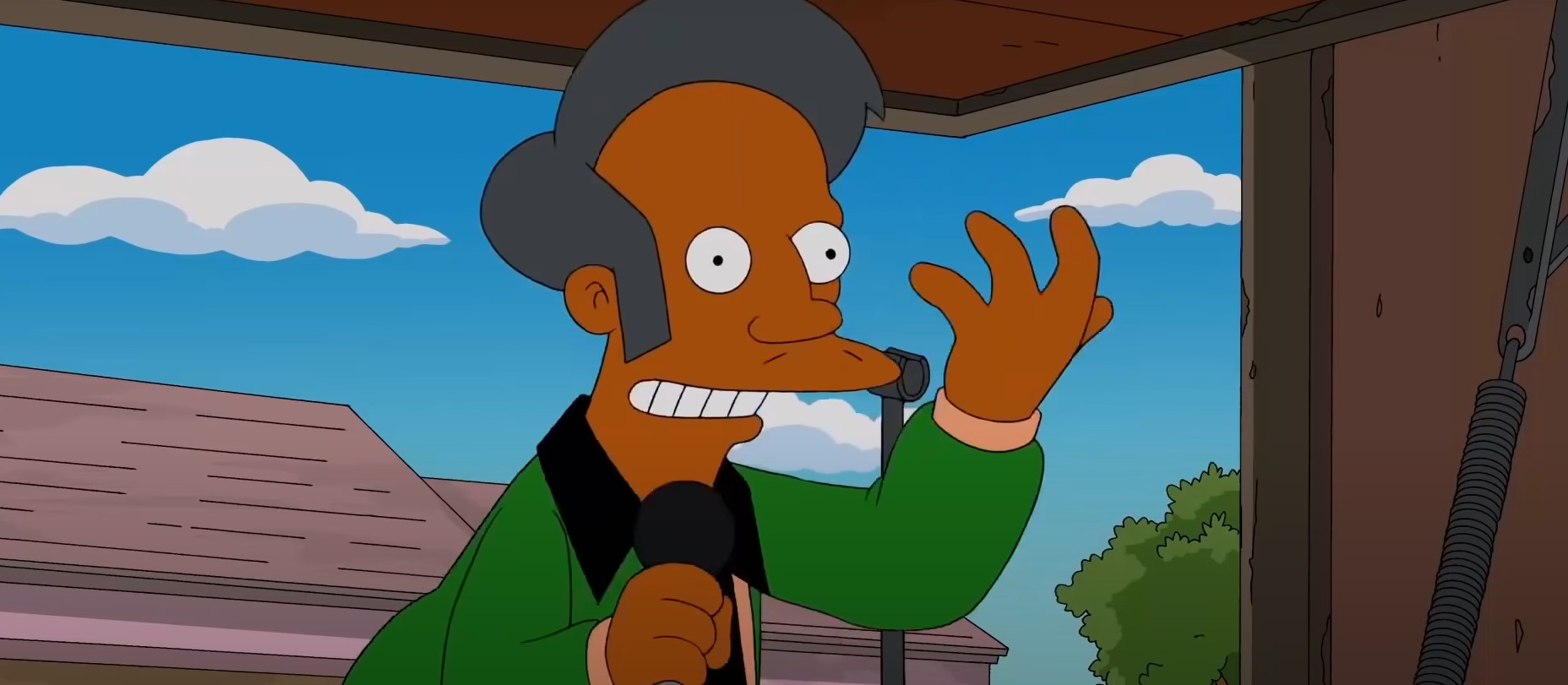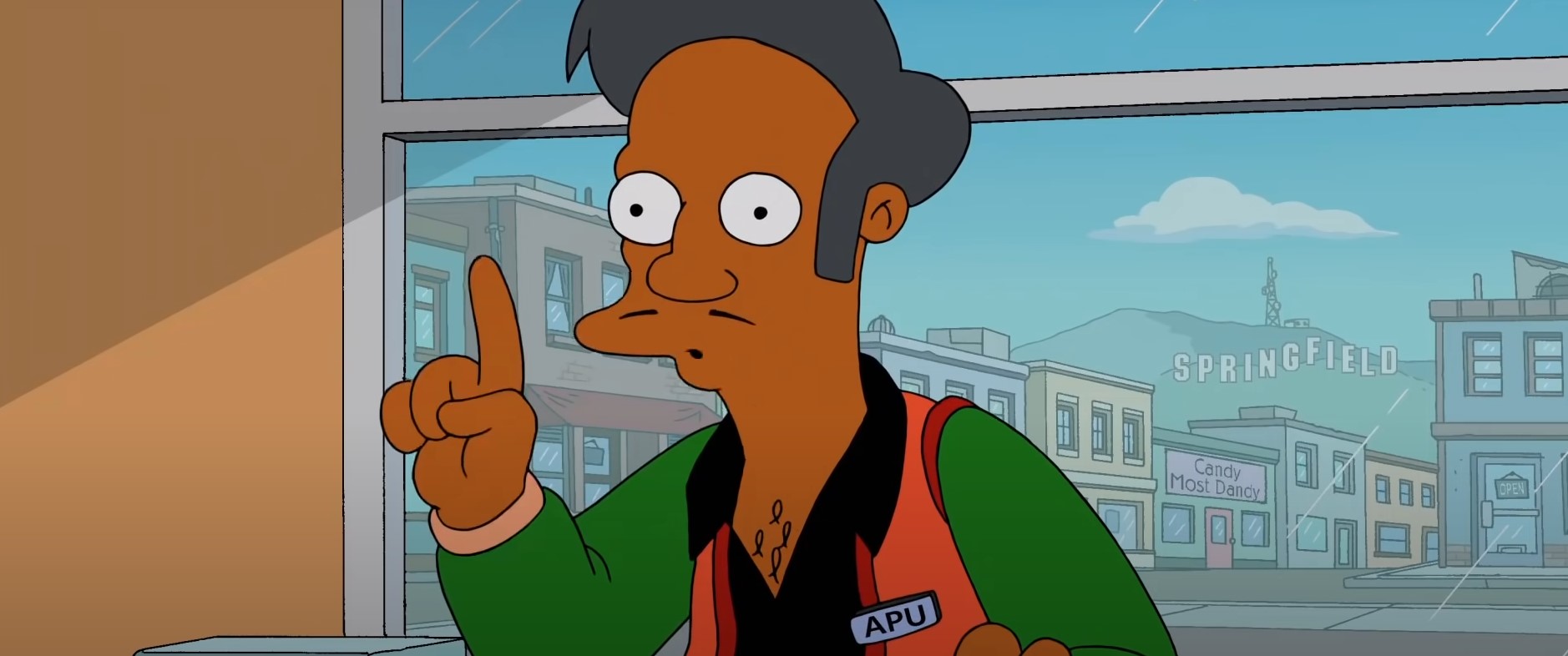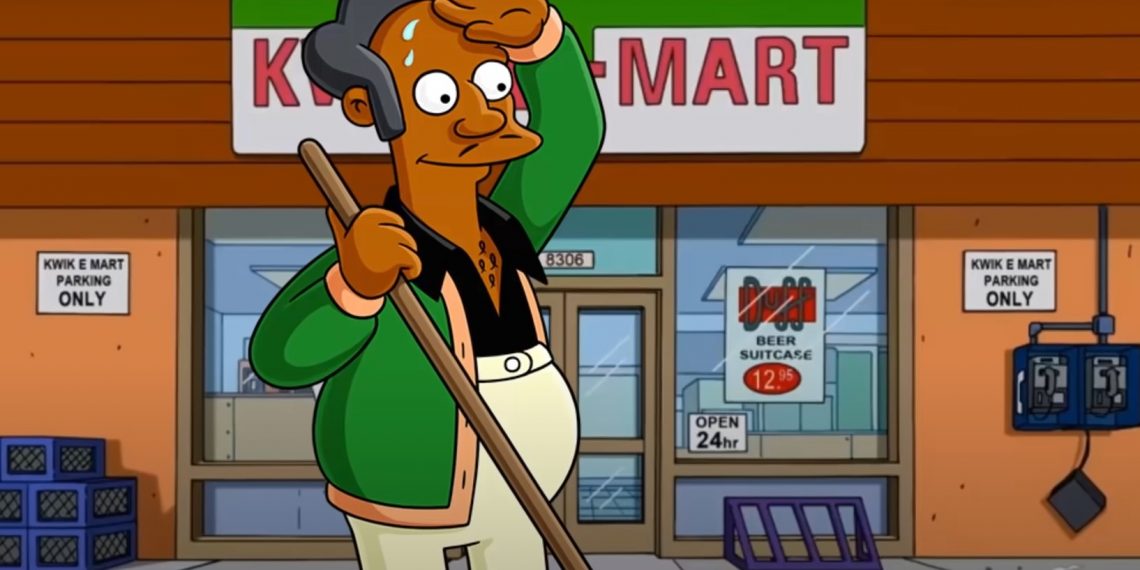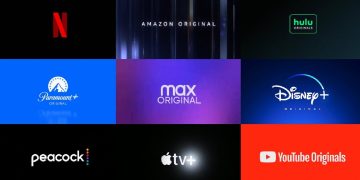With three decades on air, The Simpsons are a cultural staple, since they began as a short on the Tracey Ulman show, Matt Groening’s character became one of the most successful franchises ever produced. With their sharp wit, dramatic criticism of the current social environment, and crazy adventures, one character, Apu, the Kwik-e-Mart clerk and owner became a controversy over a non-issue.
Today, we explore why is Apu no longer on The Simpsons, voiced for years by Hank Azaria in a voice acting that mimicked the characteristic accent of English speakers from India, we saw his many adventures, misfortunes, and character story arc development. Until a woke dude started to complain that Apu’s character and voice were demeaning and insulting towards people who come from the Indian subcontinent.
As a Latin American with a strong, defined view on how humor has evolved over the years, I feel it is necessary to give you my two cents from my perspective when it comes to these kinds of issues because you see, politics is downstream from culture. And from that affirmation, we can understand a lot of what’s going on today.

What Is The Controversy With Apu Nahasapeemapetilon From The Simpsons?
Apu is an Indian immigrant who runs and operates the Kwik-E-Mart in The Simpson’s Springfield. He was voiced by Hank Azaria for years, and when a dude started to rant, rave, and share how he thought that Apu’s representation perpetuated harmful stereotypes about South Asians, the producers decided to respond to political correctness and Hank Azaria stepped down from that voice acting role, and even apologized for doing his job.
A job which in no way, shape, or form is meant to insult people from that demographic. Since that happened, Apu has been written out of the show. Behind the political correctness travesty of the “changing cultural landscape of sensitivity and representation of demographics in media”, one of the funniest supporting characters in one of the best adult animated comedies was simply erased.
It Also Happened To Seth MacFarlane’s Cleveland
The same thing happened to Seth MacFarlane with Cleveland in Family Guy, for example. And Cleveland had its own spin-off show, and it was amazing. But when the political commissars of woke extraction start to gang on something, they manage to ruin everything for everyone.
Political Correctness Ruins Humor & Entertainment
This controversy —a non-issue in my opinion— highlights just how complicated it is to interplay humor, political correctness and representation in shows that are meant to make you take your mind off of the things you face in your daily lives.
I am Latin American, I speak fluent English, and I never get tired of Sofía Vergara’s accent in Modern Family; for example, was that offensive to people in my demographic? No, quite the opposite. We had a positive attitude toward it. In fact, after Sofía Vergara’s triumphant role in Modern Family, castings for Latin American women in other productions told the actresses to speak “more like her”. Now, was that demeaning, insulting, or somehow negative? No, quite the opposite; it implied diversity and inclusion.
By excluding Hank Azaria’s Apu from The Simpsons, the show became “less diverse”, a sort of mantra that every big studio advocates for.
This heightened focus on political correctness on unjust social justice, has a negative impact on entertainment. Why? Because it stifles creativity, it dilutes the essence of satire that made shows like The Simpsons, Family Guy, and The Cleveland Show popular in the first place.
Even Stand-Up Comics Complain About Humor Being Destroyed
If you look at stand-up comedians like Bill Burr, Joe Rogan, Adam Carolla, or even the late and dearly missed George Carlin point out how social justice warriors are destroying with their political agenda that which is intended to entertain us. Some other comedians jumped on the political correctness bandwagon: Take Jimmy Kimmel or Jimmy Fallon and went full woke. Even more so after the Donald Trump campaign.
Fun fact: More Latin Americans voted for Trump than for Barack Obama or Hillary Clinton, despite Trump’s comments on the negative impact of uncontrolled immigration. When you face a woke social justice warrior, you have to be brutally honest with the facts, because that debunks the woke narrative, and their intentions come crumbling down like a house of cards.

The Simpsons Thrived On Parody
Shows like The Simpsons managed to be on the air for nearly thirty years because they thrive on parody and social commentary. They poke at most aspects of society. So, take Apu out of the equation, and you stumble upon the fact that scriptwriters, voice actors, and showrunners become too cautious and engage in self-censorship to avoid backlash. These sorts of events are the kind of stuff that writers like George Orwell covered in his dystopic novel “Nineteen eighty-four”, which was intended to be a warning, not an instruction manual.
That tense pressure to keep up with a balance and avoid offense is complex. When Michael Richards said n*gger on a stand-up routine, he was canceled the f*ck out of it. That didn’t happen to George Carlin, for example, and while you might argue that it is a sign of the change of times, it becomes more and more difficult for creators to produce stuff in the ever-evolving landscape of what entertainment represents.
Is Inclusion Negative?
No, being inclusive is in no way, shape, or form negative. It broadens the spectrum of creativity. In a time where content is segmented and tailored to your tastes, instead of jumping on the cancelation bandwagon and ruining the fun for the rest, why not try taking a look at something that feels in line with your values, attitudes, and beliefs?
Apu Did Nothing Wrong
In sum, Apu is no longer in The Simpsons, and that’s a grim reminder of how the entertainment industry behaves and cancels elements of comedy that make it successful.
It’s interesting they do that to Apu, but no one within the overrepresented Jewish demographic in the entertainment industry complains about Larry David’s character in Curb Your Enthusiasm when he starts to trash-talk everyone hiding in his ethnic and racial group identification, or how Seth Rogen claims that he likes to eat in Chinese-owned restaurants because there are “no white people” there, or how LeBron James says in his HBO show how much he dislikes white people.
While it is equally important to keep creative freedom and freedom of speech, the argumentation that “times are changing”, the argumentation that it is “the current year”, is not valid.
Bear that in mind because back in its day, when the British Raj was “the current thing”, some ethnic Jews in the USSR did wreak extraordinary havoc across vast swaths of territory, and overly nationalistic central Europeans in the 1930s justified their actions, they said the same thing: “it’s the current year” and “times are changing”.
Are these examples ontologically different? These are philosophical, metapolitical, and metaphysical aspects that we need to explore as a society to understand where we are going. Just because we’re moving forward, that doesn’t mean we’re going in the right direction. Why? What if Forward is driving full-speed ahead off a cliff like Thelma and Louise? Do we fall down? Or turn around and reflect upon what has happened?




